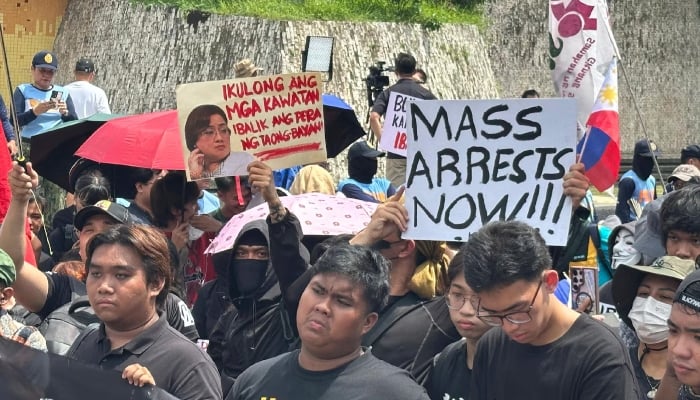
After Nepal, the Philippines is trying to fight against corruption in their government.
Thousands of people are expected to join a mass protest in the capital, Manila, on Sunday amid frustration against perceived corruption in government-funded flood control projects.
Referred to as the "Trillion Peso March", the demonstration is named after a Greenpeace estimate of $17.6 billion that the environmental organisation alleges is the amount skimmed from climate-related projects in 2023.
The September 21 demonstration holds symbolic historical significance, coinciding with the anniversary of the same day in 1972 when then-leader Ferdinand Marcos imposed martial law.
It was a massive people-power movement that ultimately toppled the decades-long reign of Marcos, who was forced to flee the country in 1989 amid widespread public dissatisfaction and allegations of corruption.
The current president, Ferdinand "Bongbong" Marcos Jr, the son of the former leader, has tried to appease the angry Filipinos, claiming that he supports the protests.
Civil society and church organisations are among groups that have called for the joint demonstrations, which have parallels with outrage over alleged government corruption and privilege across the region.
In the Philippines, public anger has been intensifying over so-called ghost infrastructure projects after Marcos put them centre stage in a July state of the nation address that followed weeks of deadly flooding.
Martin Romualdez, a cousin of President Marcos and the speaker of the Philippine House of Representatives, submitted his resignation on Wednesday.
The news came almost a week after a Gen Z-led movement in Nepal took charge from the government amid corruption and nepotism allegations.












